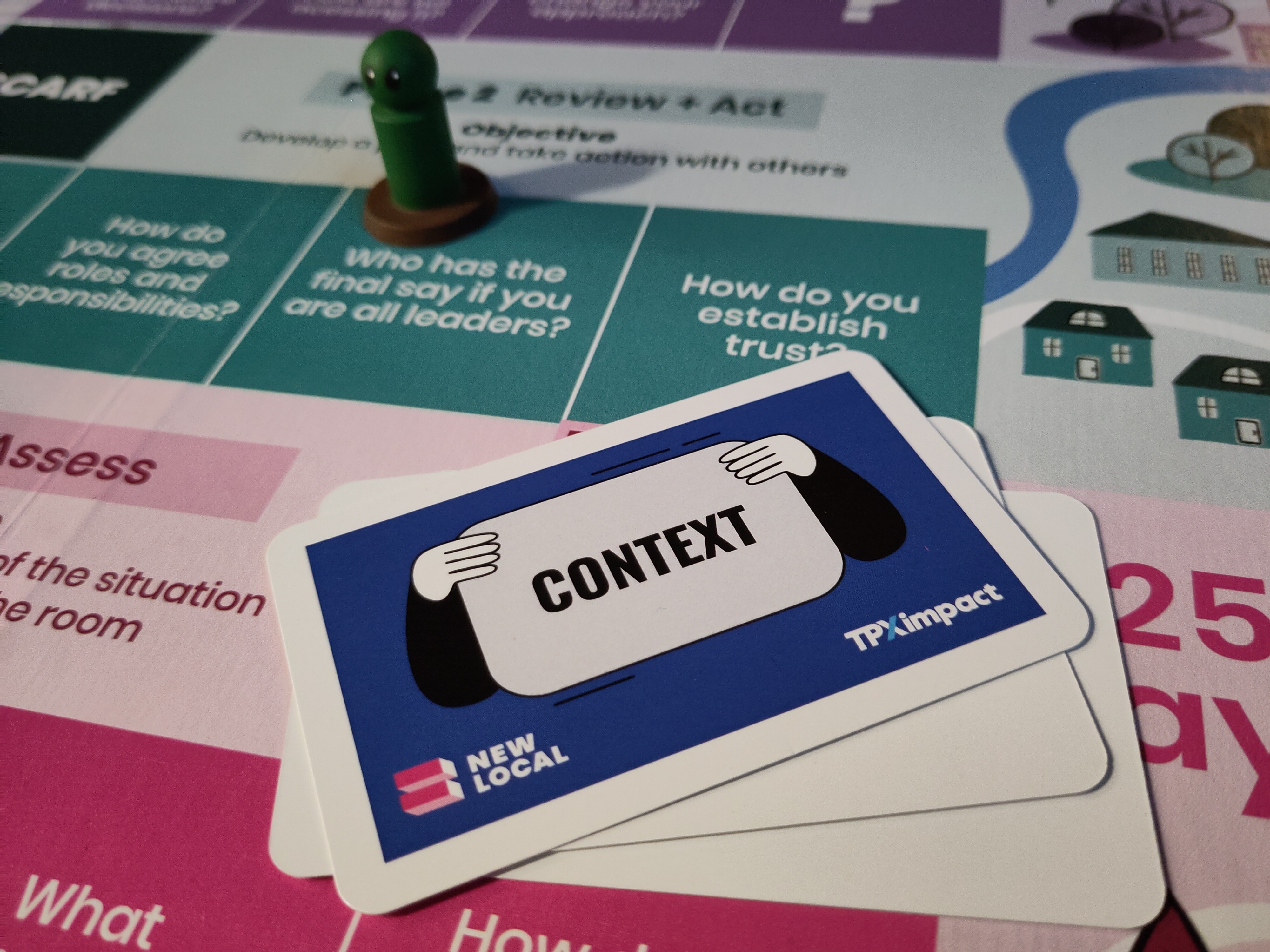As digital technologies become more widely seen as crucial to modern business, organisations face an issue of talent. Not only in recruiting for experienced technical roles — where the talent gap has been widely reported — but also in finding the right people for senior leadership positions. In this series, we speak to digital and technology leaders from a range of organisations, to find out how they're meeting their biggest challenges.
No one likes change. We might accept that it's inevitable, and learn to get our heads around it, but it's pretty much a universal truth that human beings don't enjoy it. With change comes uncertainty, and with uncertainty comes fear (or at the very least — for the most adventurous among us — apprehension...)
For digital and technology professionals, whose very job is to drive change through innovation, this presents a host of challenges. According to Alexis Castillo-Soto, Deputy Director of Digital & Data at the Department for Business, Energy & Industrial Strategy (BEIS), even when people say they want change, what they actually want is the same thing — just better.
In recent times that have seen BEIS contend with challenges from EU Exit to coronavirus, TPXimpact caught up with Alexis to reflect on recent success stories in the Department, and what further change is afoot when it comes to digital.
Approaching the change cycle
Together with many in senior digital roles, Alexis doesn't have a background in technology. This, he says, is a good thing when implementing change programmes and digital transformation, because it ensures everybody focuses on the processes and the people.
“Not being a technologist is a huge advantage because I don't talk about technology. When I talk about change it is ensuring that people understand it is a change to their process, that they will go through a change cycle, and that it's a good thing. That what I am helping them do is have a better way of working that will be underpinned by technology, but that technology alone won't be the answer. It never is, never was, and never will be.”
This also moves the conversation away from the technical aspects of digital transformation programmes, where it is easy for individuals to feel undermined by a lack of knowledge.
“A big thing with senior management, in particular, is analogies and storytelling,” Alexis says. “People don't want to be reminded that they might not be technical, or look like they don't know. So, bringing the conversation to a level that people can understand, follow and challenge where necessary is really important because then they feel part of the journey.”
Changing the public sector
Given the risk averse nature of the public sector, it's not always easy for those whose remit is to challenge the status quo and get everyone thinking differently. How will new approaches ever gain traction if people are held back by a fear of failure?
“For me, people in the public sector fear change, they don't fear failure,” Alexis says. “Because they are failing some of the time already. My role is to get them to understand why it's important to invest their time in a new product or service so that they don't fail in the future.”
“It's the cultural change that's important to successful projects, and building momentum both from the top and the bottom,” he adds. “Getting that consistent message and language is really important to make the change stick.”
V is for ventilator
Speaking of successful projects, Alexis's team is building on a streak of initiatives delivered in response to the coronavirus crisis. This ranged from the Ventilator Challenge — coordinating businesses in the production of ventilators and ventilator components, which were delivered in 48 hours; to workforce testing during the height of the pandemic.
“There are also a number of things that we've done internally, where we have been able to move the Department quickly on new products,” Alexis says. “For example, we're using AI to filter emails from our general enquiries mailbox so they go to the relevant teams. This is part of a long term investment in AI, but we're starting small and showing the benefits.”
For Alexis, delivering small products quickly and effectively is crucial, as this builds a reputation for the team to take forward and deliver bigger and better things.
“We need to take the Department on that journey of iteration,” he says. “Most people expect their Minimum Viable Product to actually be the Maximum Viable Product. They're not used to it.”
The bar has been raised
As many organisations will testify, Covid-19 led to a real change of attitudes around digital and technology. The change curve for many digital tools disappeared as organisations were forced to adapt to new ways of working.
The repercussions of this are here to stay, with digital and tech now more widely accepted as a service that needs investment, rather than an area to trim back in leaner times.
“For me, it's outcomes based,” Alexis says. “Whatever technology you pick it's — can the user understand it, can they get from A to B as quickly as possible with minimal bumps along the road... If the answer is yes, that's great. And actually, it's not about winning praise, it's about not getting complaints.”
“We have to accept that this is no longer something that is seen as different,” he continues, “it is the norm. That's a challenge, particularly for IT and digital teams, because they expect a pat on the back. But it's just an expectation, a bar that has been raised.”
Supporting the team
The realisation that their sparkling new product or service should be unremarkable might involve a change in mindset for digital teams. But it's a wider reflection of the way good digital tools fit seamlessly into peoples' lives. There's no fanfare, no Eureka moment, they just make everything that little bit easier.
It's also an acknowledgement that digital professionals, just as much as those they work with, also need to change and adapt themselves. In pressured delivery environments, supporting the needs of the team is crucial for managers. So how has Alexis looked after his people over the past 18 months?
“A bit of humour, lightheartedness, and silliness is key,” he says. “Just because we're not in the office doesn't mean we can't have that social interaction. A big success has been our weekly team meeting where the whole team gets together, 40-50 permanent civil servants plus contractors. And whoever is talking has to bring a musical intro...”
“We've found the meetings have been more productive than they would have been face to face because we have two meetings at the same time: the extroverts open up on camera, and then we have the introverts being extrovert on the chat. It's brought us much closer than we probably would have been, had we all just been in the office.”
The new normal
We've all heard a lot about “the new normal” we can expect as we return to life in a lockdown easing world. But maybe it's less about wearing a mask, or not wearing a mask; returning to the office, or working from home.
Perhaps the real new normal can be found in our expectations of the digital products and services that as a society we've more widely embraced over the past year and a half. We might eventually return to our old workspaces, but we will continue to demand more from digital and technology. It's what our leaders — in both government and business – do with this demand that will really count.

The role of play in building leadership skills
How play can offer local government leaders a powerful tool to break free from rigid structures.
Read moreOur recent insights
Transformation is for everyone. We love sharing our thoughts, approaches, learning and research all gained from the work we do.

The role of play in building leadership skills
How play can offer local government leaders a powerful tool to break free from rigid structures.
Read more
Putting people at the centre of the ICS integration
This post is the third in a series about the future state of health & care, based on our experiences delivering transformation with partner organisations and interviews with senior colleagues.
Read more
ICS integration: a missed opportunity for radical change
This post is the second in a series about the future state of health and care, based on our experiences delivering transformation with partner organisations and interviews with senior colleagues.
Read more

